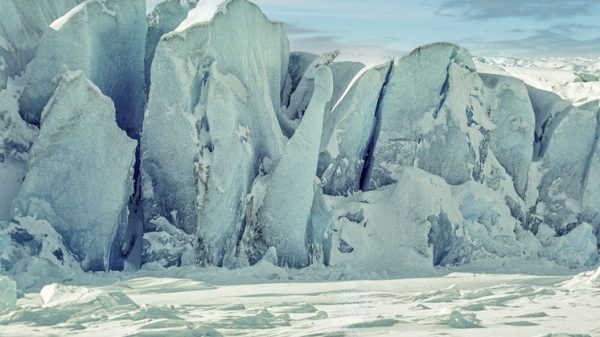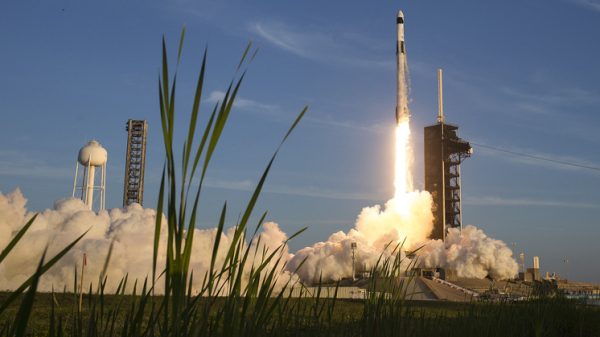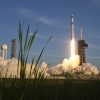
The Russian polar research vessel Alexander Karpinsky attracted little attention when it docked in Cape Town on its way back from Antarctica in February 2020 . .
At the time, Western governments were consumed by reports of a deadly coronavirus that was spreading from China to the rest of the world.
Nevertheless, the news was carried aboard the blue and red ships. Tsvetnoy Karpinsky had a seismic character, both literally and figuratively.
In a statement following the expedition, the Russian geological agency Rosgeologia said research had identified about 70 billion tons of oil and gas buried under the Antarctic shelf.
This is equivalent to more than 500 billion barrels of crude oil. enough to meet global demand for 14 years. This follows years of detailed research by Rosgeo, including operations in areas of the region claimed by the UK.
“The data obtained during the new expedition … will significantly clarify our expectations regarding oil. and gas content of the Antarctic shelf seas,” said Sergei Kozlov, chief geologist of PMGE, a subsidiary of Rosgeologiya.
Fast forward four years, however, and the West has finally taken notice of this astonishing discovery and its potential consequences for geopolitics.
MPs last week demanded answers about Russia's «worrying» activities in the far south, questioning Foreign Office officials and the government's chief minister at a committee hearing.
Their intervention followed concerns that Moscow's geological exploration could be a prelude to seize resources at a time when Vladimir Putin's regime is under economic pressure due to Western sanctions.
Drilling for resources in Antarctica would constitute a violation of the international treaty that has governed the territory for decades and which specifically prohibits «any activity related to mineral resources other than scientific research.»
And while Russia insists the polls are scientific, experts are increasingly concerned they represent just one example of the so-called «gray zone» tactics the Kremlin is employing around the world to muddy the waters. acceptable behavior.
«There is concern that Russia is collecting seismic data that could be interpreted as exploratory rather than scientific research,» said Klaus Dodds, Antarctic expert and professor Geopolitics, Queen's University. Holloway College, presented to MPs.
Dodds also pointed to clashes between Moscow and other countries including Britain, including over fishing rights, blocking inspections of Russian base camps and a dispute over the invasion of Ukraine during the 2022 annual meeting.
Under this model, Russian oil and gas exploration appears to be «a conscious decision to subvert the norms associated with seismic exploration and, ultimately, a harbinger of resource extraction to come,» Dodds has written elsewhere.
Antarctica, which is about 56 times the total area of Great Britain, is not currently governed by any one country, making it a vast and inhospitable no man's land.
This state of affairs dates back to the Antarctic Treaty, originally signed by 12 countries in 1959 as part of an effort to promote scientific cooperation.
Seven of them laid historical claims to the territory — Argentina, Australia, Chile, France, New Zealand, Norway and the UK — while the US and Russia (then the Soviet Union) reserved the right to make claims in future. not recognizing strangers.























































Свежие комментарии